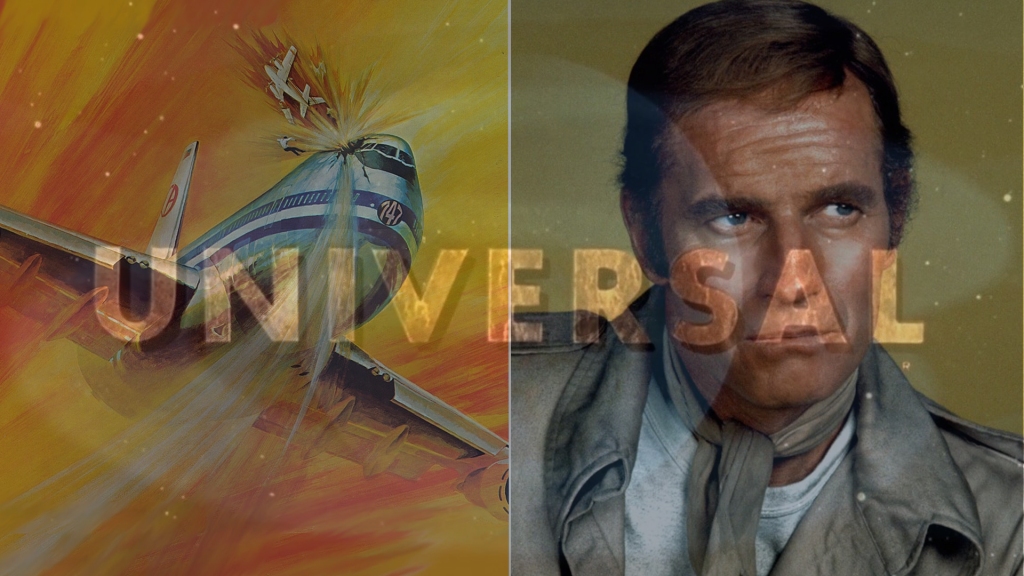
Denis Villenueve’s Dune has been out for almost a week in most markets (and even longer in some) and apart from the general consensus quickly crystallizing around the movie itself (you can find my own take here), the world was abuzz with one question: when will we see Dune: Part Two?
Well, now it seems to be confirmed that WB and Legendary will indeed go ahead with the production of the sequel to Denis Villenueve’s film which will see the light of day in the latter half of 2023. This sent all Dune-stans into a euphoric state underpinned by a colossal sigh of relief because the way the studio played this out suggested that it wasn’t necessarily a given that a movie starting with a title card Dune: Part One would be afforded an ending. At least from where I was sitting, it seemed to me the studio hedged this decision on the film’s financial success in its opening weekend. And I am not sure I am comfortable with what this potentially means for the future of financially risky blockbusters untethered from the current superhero zeitgeist.
Granted, it is entirely possible the decision to green-light Dune: Part Two was made long ago and maybe Denis Villenueve was promised he would turn this project into a trilogy (which is something he has mentioned in interviews himself). Naturally, contracts have to be written well ahead of time, actors and crew have to be secured so as to avoid any availability problems when the time comes to yell ‘action!’ and get on with the job, and understandably a lot of preparatory work must be done before a project of this magnitude can be lifted off the ground. It is only logical to assume this was the case. Studios, much like all big corporations, don’t waste their time with short-term decisions but look well ahead, so they must have been seriously considering the possibility they would have to finance not one, but two (potentially even three) Dune movies as part of the deal. Why else ‘would anyone agree to give the film its title card clearly spelling it’s a first part of many, and ending the film on a veritable cliffhanger?
But nevertheless, WB and Legendary decided against informing the public at large the sequel was coming until after it made considerable bank at the box office. On top of that, the marketing to the film (posters, trailers and literally everything!) conveniently omitted informing potential movie-goers they were only going to see a part of the story. Does it sound right to you? Think about how you’d feel if twenty years ago you had been told by New Line Cinema about their upcoming The Lord of the Rings movie in the same way and having bought the ticket to see the movie you’d be greeted by the subtitle The Fellowship of the Ring, only to be then slapped with a massive cliffhanger at the end… I’d have been fuming.
Now, of course this comparison is flawed in some way because everyone knew Tolkien’s book was divided into three well known parts and that it was simply too dense and too large to fit within the parameters of a single feature-length movie. But it was still one book. The Lord of the Rings is not a collection of three books but one novel divided into three parts. If memory serves, Tolkien envisioned it as a single entity divided into six sections but was overruled by his publisher; but that’s beside the point. You can’t just adapt The Fellowship of the Ring and call it a day because the story doesn’t end there. In fact it only truly finds its footing at the end of the volume. Producers agreed and communicated to the public that The Lord of the Rings would be adapted into a trilogy of movies released over the course of three years without resorting to cheap shots, dirty games and making the audience feel as though they had to earn their right to see the ending to the film they had already paid to see a part of.
It honestly looks as though the producers bankrolling Dune were fundamentally disrespectful to the audience. They either assumed that some viewers wouldn’t turn up if they knew ahead of time they were only going to see a part of the story, or they preferred to keep their options open in case the film ended up financially unsuccessful (much like David Lynch’s troubled 1984 adaptation of the same novel) so that they could can the project on the basis of never formally committing to anything. Neither of these options is a good look for them because I think at this point everyone knows – even those who have never read Frank Herbert’s book – how thick and dense the novel is and that it might be impossible to adapt it as a whole in one fell swoop, and also backpedalling out of financing the other half of the story would make this adaptation of Dune a bona fide cultural disaster – a half-built skyscraper abandoned by its developer mid-construction.
I have been thinking a lot about this over the last few days and I think it is best to think that adapting any literary work for the screen is much like climbing a mountain. Some don’t require much preparation and can be scaled recreationally, others require experience, gear, financial commitment and certain degree of physical fitness. There is a world of difference between climbing Snowdon, which can be summited by your gran on a Sunday, and Mont Blanc, which may result in your death or permanent injury if you come at it unprepared and ill-equipped. A difficult mountain must be studied and the mountaineer must prepare for the mission by planning stops, overnight camping if needed, sourcing relevant gear and assembling a support team. And books are like mountains. If you want to adapt one, you have to study it, figure out the path through it and based on your observations, determine what kind of prep work is needed, how much money you would require to do this job correctly, get the gear and the right people in the right place and put your best foot forward.
But some books are unlike any other books, just like some mountains are unlike any other mountains. As someone who has spent their youth casually hiking in the mountains, I think I could – with the right amount of prep work and determination – climb to the top of Kilimanjaro or Mont Blanc one day. But I know for a fact I’d likely never see the world from the top of Mount Everest. Some mountains are just beyond the limitations of the vast majority of people and any attempt to scale them requires immense effort and planning. You don’t go on a trip to the top of the world. You go on an expedition.
Well, just like there are fourteen so-called eight-thousanders, highest summits in the world, there are novels widely considered impossible to adapt, such as James Joyce’s Ulysses, Thomas Pynchon’s Against the Day, Cormac McCarthy’s Blood Meridian and of course J.R.R. Tolkien’s The Lord of the Rings and Frank Herbert’s Dune. Naturally, a simple Google search will let you know that many of those titles (and there’s more) have already been adapted for the screen in some form; though in many cases unsuccessfully. In fact, among these eight-thousander novels, only The Lord of the Rings stands proud as an adaptation which has successfully ensnared the world, endeared the fans of the source material and secured its own distinct place within our culture. If it is the Mount Everest of literary adaptations, then Peter Jackson is Sir Edmund Hillary of cinema. Coincidentally, both hail from New Zealand.
I think it goes without saying that Peter Jackson and his backers knew perfectly well (according to sources, some producers did indeed need some convincing in this regard) that Tolkien’s magnum opus could not be boiled down to fit into one movie. It had to be divided into three parts and unless something catastrophic were to happen, all three films were agreed on ahead of time and filmed back-to-back-to-back. They knew they were going on an expedition that required lots of preparation, immense investment and a whole lot of faith in Peter Jackson’s vision. The rest is history.
Suffice it to say that if The Lord of the Rings is the Mount Everest of literary adaptations, then Frank Herbert’s Dune is K2. It’s difficult, treacherous and unpredictable and has already claimed a lot of lives. Adapting Dune is a considerable challenge, which I believe Denis Villenueve was perfectly aware of, but somehow his studio backers did not treat it seriously enough. If we stay within this elaborate mountaineering analogy, WB and Legendary seemed to behave as though they were only comfortable financing a part of the expedition and upon seeing satisfactory progress, they would come through with reinforcements. This isn’t how you climb K2! This is how you leave someone to die!
What if Dune ended up bombing at the box office? What then? The studio would have washed their hands and moved on whereas Denis Villenueve – a rather accomplished filmmaker with some serious cultural footprint already – would be always remembered as the guy who made half of Dune. He would be the guy who failed under the weight of Frank Herbert’s prose, seen as a failure rather than as someone who was abandoned by people who promised to support him as he embarked on an insanely dangerous expedition to scale the most treacherous summit among literary adaptations. He’d be left for dead in the snow, with dwindling supply of food and oxygen. And if his backers have always planned to resupply his mission halfway through, letting the public think they wouldn’t is truly detestable in its own right. If you are serious about planting a flag into the supple tip of the K2 of literary adaptations, it is best accomplished based on mutual trust between the filmmaker doing the heavy lifting, his support team and the rest of the world cheering him on.
After all, we are all in this together. I think we can all agree that every film lover (regardless of whether they are fans of science-fiction or Herbert’s writing) wants to see Dune become a cultural touchstone like The Lord of the Rings was in its day. Unfortunately, studio moguls don’t see the world this way and in fact the logic behind their actions is more at home with triple-A game developers rather than well-established movie studios. They marketed an unfinished product to us as though it was complete and only after we paid they told us we’d need to wait a long while to see the DLC with the ending. And only under the proviso of enough of us paying for it in the first place.
I don’t know about you, but I find this behaviour condescending and scandalous. I might not have been the biggest fan of Denis Villenueve’s vision of Dune but I sincerely hope to see Dune: Part Two and even more because Herbert’s work deserves to be committed to the screen in a way that reflects the scope of the novel. Granted, Lynch’s movie is loveable in its own right, but Dune deserves its Peter Jackson treatment, if you know what I mean. And this requires a lot of money, a lot of trust and a lot of time. So why don’t we stop pretending as though it was OK for a massive corporation to treat their clientele in such a condescending manner and let it be heard that it’s not alright to refer to this year’s Dune as an appetizer or that the next film is going to be a sequel. It’s not an appetizer and Dune: Part Two will not be a sequel. It should have always been conceptualized as one movie divided into parts and marketed as such because we are not donkeys and we understand that – just like nobody can climb K2 in a day – a book like Dune should be adapted into more than one film.




Leave a comment